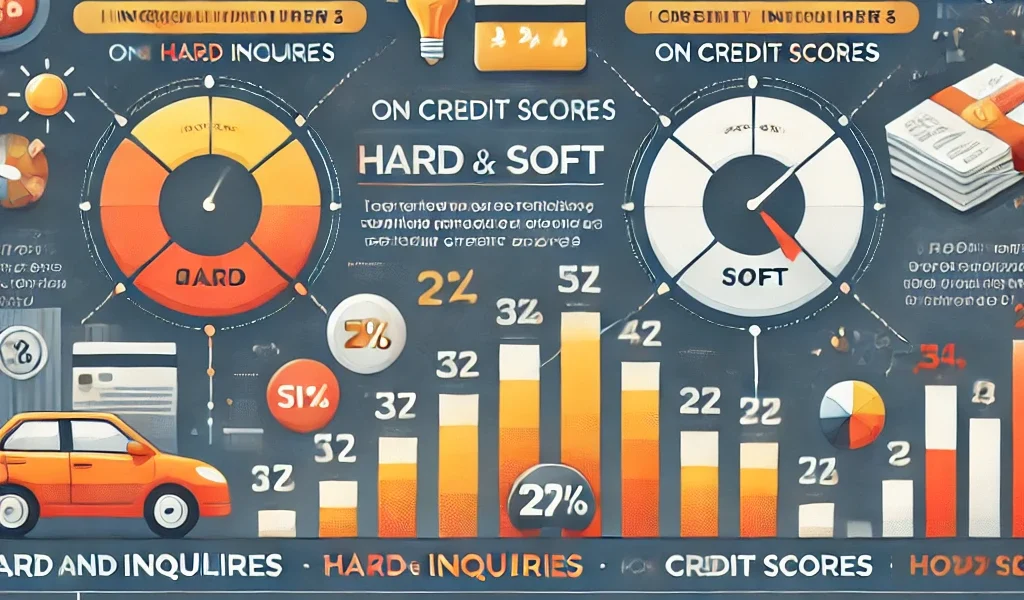Your credit score plays a crucial role in determining your financial credibility. Lenders, landlords, and even some employers use it to assess your reliability. One of the lesser-known factors affecting your credit score is credit inquiries. If you’re unsure how these inquiries work or how they impact your credit, this guide is for you.
In this detailed, SEO-friendly, and audience-engaging guide, we’ll explore:
- What credit inquiries are
- How they affect your credit score
- How to manage and minimize their impact
What Are Credit Inquiries?
A credit inquiry occurs when a financial institution, lender, or creditor checks your credit report. These inquiries are recorded on your credit file and can influence your credit score.
There are two main types of credit inquiries:
1. Hard Inquiries (Hard Pulls)
A hard inquiry happens when a lender or creditor checks your credit report to make a lending decision. These inquiries generally occur when you apply for:
- Credit cards
- Personal loans
- Auto loans
- Mortgages
- Student loans
Since hard inquiries indicate that you’re seeking new credit, they can lower your credit score temporarily, especially if you accumulate multiple inquiries in a short period.
2. Soft Inquiries (Soft Pulls)
A soft inquiry occurs when you or an authorized entity checks your credit report for non-lending purposes. Examples include:
- Checking your own credit score
- Pre-approved credit card or loan offers
- Employer background checks
Unlike hard inquiries, soft inquiries do not affect your credit score.
How Credit Inquiries Affect Your Credit Score
Hard inquiries can impact your credit score, but the effect is usually small and temporary. Here’s how they work:
- A single hard inquiry may lower your credit score by 5-10 points.
- Multiple hard inquiries within a short period (for example, when applying for multiple loans) can further lower your score.
- Credit scoring models recognize rate shopping, meaning inquiries for the same type of loan within a certain time frame (usually 14-45 days) count as a single inquiry.
How Long Do Hard Inquiries Stay on Your Credit Report?
A hard inquiry remains on your credit report for up to two years, but its impact on your credit score typically fades after a few months.
How to Manage and Minimize the Impact of Credit Inquiries
1. Limit Unnecessary Credit Applications
Applying for too many credit cards or loans within a short period can negatively impact your credit score. Only apply for credit when absolutely necessary.
2. Use Pre-Qualification Tools
Many lenders offer pre-qualification tools that perform soft inquiries to check your eligibility without affecting your credit score. Use these tools before formally applying for credit.
3. Time Your Loan Applications Wisely
If you’re shopping for a mortgage, auto loan, or student loan, submit all applications within a 14-45 day period to ensure multiple hard inquiries count as one.
4. Regularly Monitor Your Credit Report
Check your credit report for unauthorized or incorrect hard inquiries. If you notice an inquiry you didn’t authorize, dispute it with the credit bureau.
5. Keep Older Accounts Open
Maintaining older credit accounts in good standing can offset the impact of new inquiries and help maintain a strong credit score.
6. Build Credit Responsibly
Use credit responsibly by making on-time payments, keeping balances low, and maintaining a healthy mix of credit accounts.
Final Thoughts
Understanding how credit inquiries impact your credit score is essential for managing your financial health. While hard inquiries can temporarily lower your score, being strategic about credit applications and monitoring your credit report can minimize the impact.




